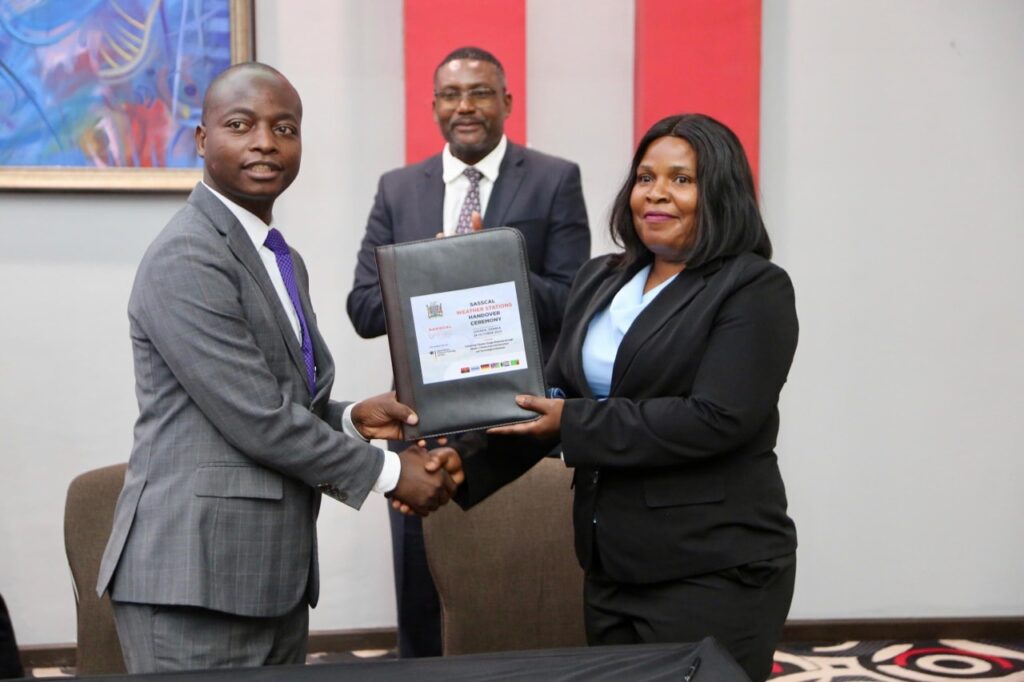New Weather Stations Upgrade Zambia’s Climate Intelligence and Disaster Preparedness
Zambia has strengthened its national climate data infrastructure following the official handover of 15 automated weather stations under the SASSCAL Weathernet (WeNet) Project.
The equipment, funded by the German Federal Ministry of Research, Technology and Space, was handed over at a ceremony held at Radisson Blu Hotel in Lusaka under the theme: “Enhancing Climate Change Response Through Modern Climate Data Infrastructure and Technological Solutions in Zambia.”
The project marks a major step towards improving early warning systems, agricultural planning and energy management. The stations will supply accurate, real-time climate information to support government agencies, farmers, researchers, disaster response units and industry leaders.
The initiative aligns with President Hakainde Hichilema’s policy agenda, which places climate resilience, digital transformation and evidence-based planning at the centre of national development. It also advances key pillars of the Eighth National Development Plan, particularly environmental sustainability, green growth and technology-driven governance.
Speaking at the ceremony, Permanent Secretary at the Ministry of Technology and Science, Eng. Dr. Brilliant Habeenzu, reaffirmed the government’s commitment to using technology to confront climate challenges. He noted that Zambia’s temperature has risen by 1.3°C since the 1960s, resulting in rainfall variability, drought and energy deficits.
He described the SASSCAL WeNet infrastructure as a “timely and strategic intervention” that will support a climate-resilient and knowledge-based economy. Dr. Habeenzu also acknowledged the German Government’s €303,000 contribution and encouraged continued global partnerships. He stressed the need for proper maintenance and consistent data sharing to support disaster preparedness and long-term planning.
SASSCAL Executive Director, Professor Nelago Ndongo, highlighted the organisation’s regional achievements, noting its transformation into a major climate research centre serving six countries. Under WeNet, 108 automated weather stations across Southern Africa are under maintenance warranty, with Zambia receiving 15 of these installations alongside training for local meteorological staff.
Professor Ndongo emphasised the importance of the stations for agriculture, aviation, energy, research and water management. She also called for support from government, academia and the private sector to ensure long-term sustainability.
The new infrastructure will significantly enhance Zambia’s meteorological capacity, strengthen regional scientific collaboration and expand opportunities for students and researchers.
With accurate climate data now widely accessible, Zambia is expected to improve climate adaptation, reduce vulnerability and reinforce its position as a regional leader in innovation-driven resilience.



